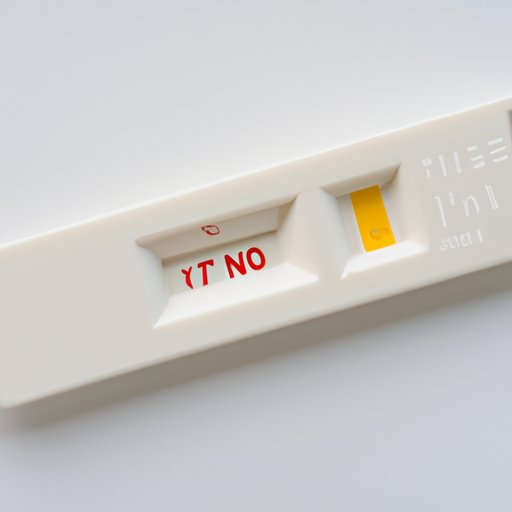
Can You Get a False Positive Pregnancy Test During Ovulation?
When it comes to trying to conceive, understanding your fertility window is crucial. A false positive pregnancy test can cause confusion and disappointment, especially during ovulation. But can ovulation cause a false positive? The answer is yes, and in this article, we will dive into the reasons behind it and how to avoid it.
Ovulation vs. Pregnancy – Understanding False Positive Results in Home Pregnancy Tests
Before we discuss false positive results, let’s clarify the difference between ovulation and pregnancy. Ovulation is the process where an egg is released into the fallopian tube, waiting for fertilization by sperm. Pregnancy occurs when a fertilized egg implants in the uterus.
Home pregnancy tests work by detecting the presence of human chorionic gonadotropin (hCG), a hormone produced by the fertilized egg. However, hCG and luteinizing hormone (LH), which is responsible for triggering ovulation, are structurally similar. As a result, LH can cross-react with pregnancy tests, leading to a false positive result.
The Science Behind False Positive Pregnancy Tests During Ovulation
To understand how false positives can occur, let’s examine the menstrual cycle. The menstrual cycle is a series of hormonal changes that prepare the body for pregnancy. The first half of the cycle involves the growth of the egg, while the second half involves the preparation of the uterus to receive a fertilized egg.
Ovulation occurs when LH levels surge, indicating that an egg is ready to be released. However, LH levels can surge for reasons other than ovulation, such as stress or medications. This surge can cause false positive results on a pregnancy test.
The Risks of Using Home Pregnancy Tests for Ovulation Tracking
While pregnancy tests can be a useful tool for tracking ovulation, they should not be the only method used. In addition to the risk of false positives, relying solely on pregnancy tests can also miss ovulation entirely. Additionally, a false positive can cause unnecessary stress and disappointment, potentially hindering fertility efforts.
Why You Might Get a False Positive Pregnancy Test During Ovulation and How to Avoid It
Several reasons can cause a false positive pregnancy test during ovulation, including taking the test too early, an LH surge, or improper use. To avoid false positives, it is crucial to understand and track the menstrual cycle accurately.
One way to avoid false positives is by tracking LH levels using ovulation predictor kits (OPKs). These kits detect the LH surge, indicating that ovulation is approaching. Using an OPK and pregnancy test in conjunction can provide greater accuracy in tracking ovulation and fertility.
The Impact of Hormonal Fluctuations on Home Pregnancy Tests During Ovulation
Hormonal fluctuations can impact the accuracy of home pregnancy tests during ovulation. Stress, illness, and medications can all affect hormone levels, potentially leading to a false positive or false negative result. It is essential to take a pregnancy test at the right time and following the instructions carefully.
When to Take a Pregnancy Test for Accurate Results – Tips for Avoiding False Positives During Ovulation
The best time to take a pregnancy test is one week after a missed period. If testing early, wait at least a day after a missed period to avoid false negatives. Always follow the instructions on the packaging to ensure accurate results.
If you suspect that you have received a false positive result, repeat the test in a few days or contact your healthcare provider for further testing.
Conclusion
A false positive pregnancy test can cause unnecessary stress when trying to conceive. While false positives can occur during ovulation, it is essential to understand the menstrual cycle and track ovulation accurately. Using pregnancy tests and ovulation predictor kits in conjunction can provide a better understanding of fertility and increase the chances of conception. If you are concerned about fertility or have received a false positive result, it is best to consult with a medical professional.





